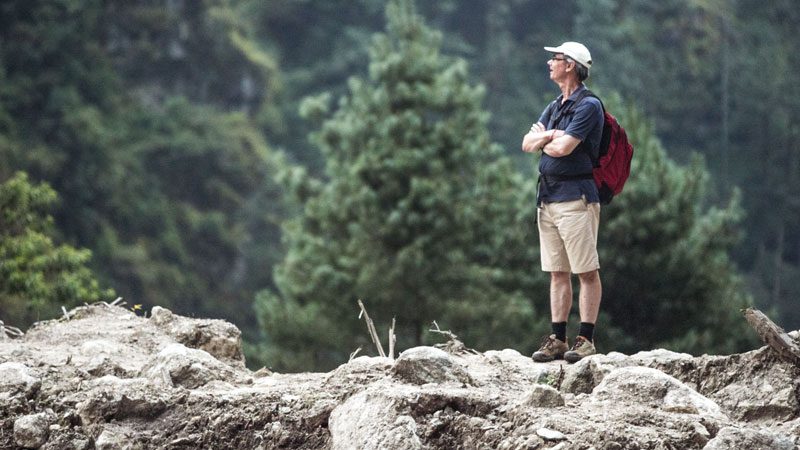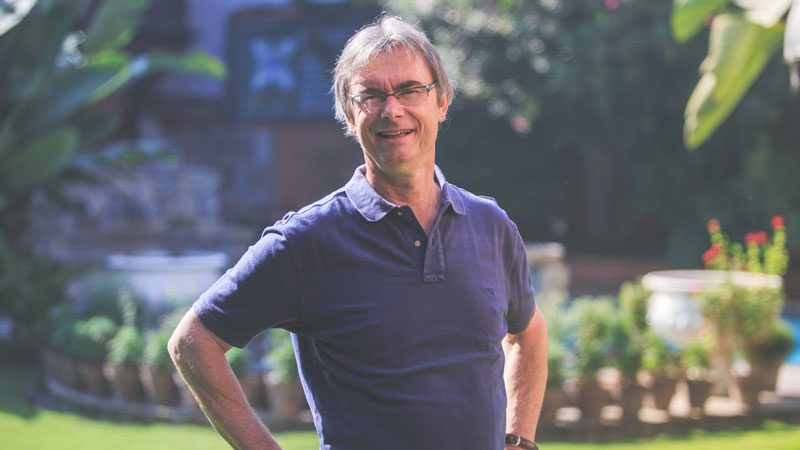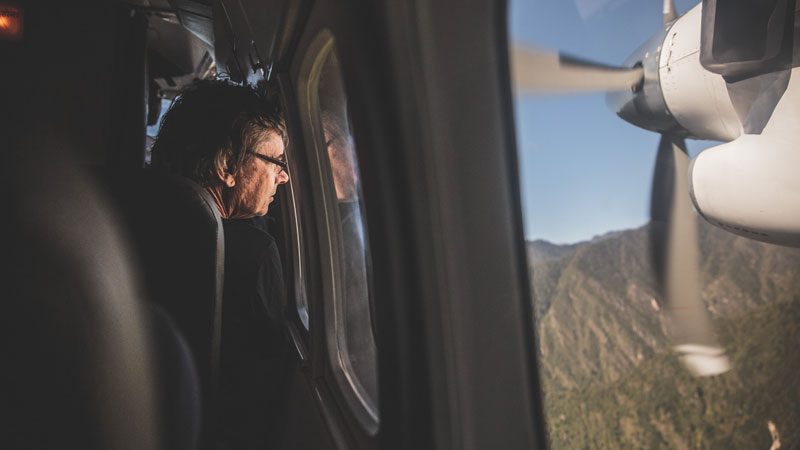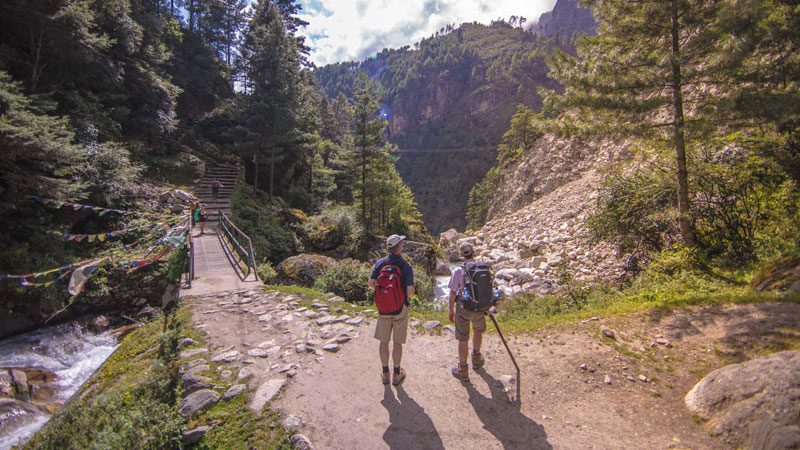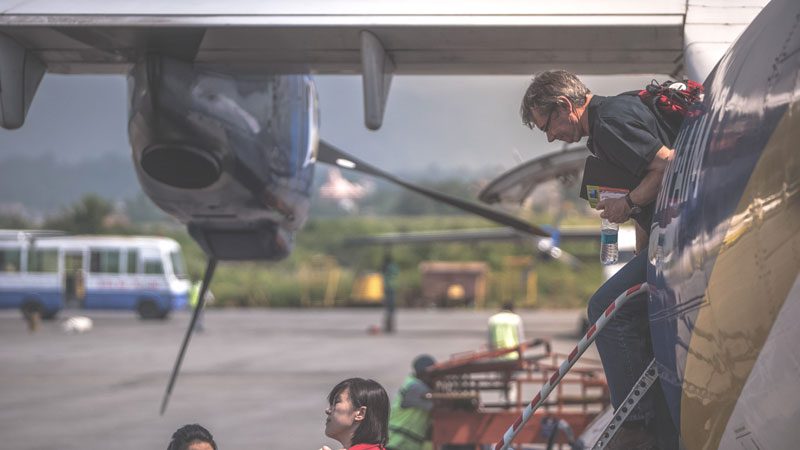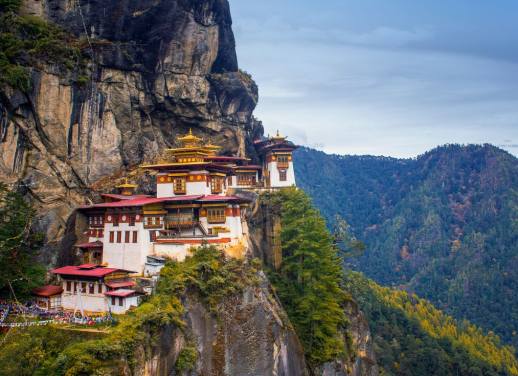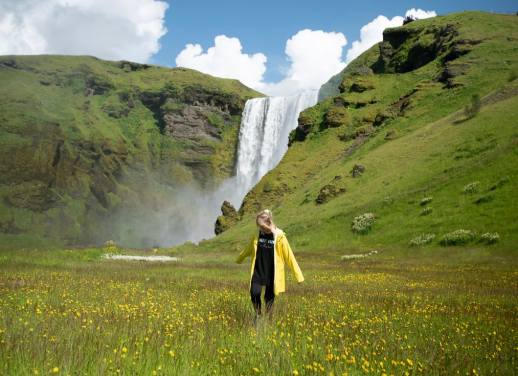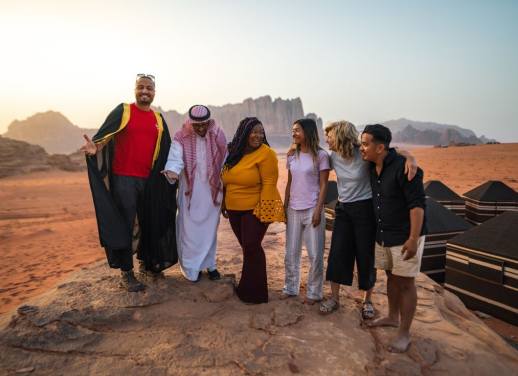When Melbournian Geoff Manchester co-founded Intrepid in 1989, he was the company’s only guide and Thailand was its only destination.
The concept – small group tours offering intimate experiences in foreign cultures – proved a winner. Over the next decade we expanded into Borneo, Bali, Java and across Southeast Asia, and in 1998 Intrepid went global. Today ‘Manch’ (and his co-founder Darrell Wade) oversee more than 1,300 guides working in 130 countries, he’s also chair of our not-for-profit, The Intrepid Foundation. Despite his hectic workload he’s never stopped travelling – for work, relaxation and to continue to explore, especially if there’s momos involved.
The first place I travelled to
To the the UK after graduating from university in 1981 when I was 21. I went with Darrel (Intrepid’s other co-founder) and afterwards we backpacked around a dozen different European countries.
What inspired me to create a career out of travel
I didn’t get to travel again until I was 27, when I spent three months travelling around Southeast Asia. It was then that I started thinking about all the people back in Australia who would enjoy backpacking overseas but didn’t have the confidence or desire to do it by themselves.
So I started tossing around the idea of doing organised backpacking – not staying in scummy places but in hotels and guesthouses that are clean and comfortable and have private bathrooms. But the moment those guests walked outside their hotel they would get to see what every other backpacker saw – a foreign culture warts and all, without being shielding from the local people and the realities of everyday life.
Where I like to go now that I’m a bit older
When I travelled around Europe I really enjoy it, but essentially the culture was not so different to mine. So nowadays I prefer travelling in developing countries because the culture is very different. And in most cases that also means the religion and history are very different.
The one thing that’s always in my carry-on
If I’m travelling with my family it would be a good first aid kit with anti-nausea, diarrhoea rehydration tablets and a few bandages. But if I’m travelling by myself I’m much more casual about it and would probably say a sarong. It’s useful as a bed sheet or towel, to cover yourself from the sun and to go swimming in. In Asia there are many temples where you aren’t allowed in if you’re wearing shorts, so a sarong can solve that problem too.
Most common mistakes rookie travellers do
They bring things they see as important before they leave that are really not that important – and end having to carry all of it around. People also tend to buy backpacks that are cheap but don’t sit on their bodies very well. After carrying them around for a while, they become very uncomfortable.
Favourite place to travel in Australia
I would have to say Tasmania because of its purity, because it’s small and easy to get around, and because it has has such great food and wine.
The pluses and minuses of travelling solo
Solo travellers have flexibility; they can change their travel plans at the drop of a hat. Travelling by yourself also forces you to be more sociable with people who you meet along the way.
But the big disadvantage is that there are many travel activities for which you need a group of people to do. That first came home for me when I was travelling in Borneo and discovered the only affordable way to go on a boat into the heart of Borneo to see the long houses and former headhunting tribes was with a group. Even when trekking in places like Nepal, travelling in a group allows you to share the cost of things like guides and porters.
Where I want to go to next
Japan has been near the top of the list for a long time but for some reason or other I have never got there. I love Japanese food and I really want to experience the real thing.
Why cruising is so popular
I went on a cruise to Antarctica once and I thought it was amazing because of the wildlife. But for most people I think the appeal of cruising is that it’s so easy. You unpack once during the whole trip and that’s it. Cruising really only offers a taste of a destination. But after getting a taste, people who’ve been on cruises may be more inclined to try adventure or solo travel.
How the way we travel is changing
For a high proportion of us, travel is no longer something only the rich can afford; it’s something we do every year or two. So we’ve come to realise there’s so much more out there than sitting by a pool at a resort and drinking a beer. There’s stuff going on outside the resort and people want to experience it, and that’s what Intrepid has always been about. In the past that put us at the extreme end of the market, but now the market is moving towards us. If you look at the more conservative tour companies that run coach tours and river cruises, now they also talk not just seeing places but experiencing them, because travellers today crave real-life encounters.
The other thing I see happening in the marketplace are much more opportunities for niche travel experiences because the demand is there to sustain them. For example, you can do a tour of fifteenth century history in Europe. That’s a bit extreme, but we offer foodie trips and they’ve proven quite popular because of all the interest in cooking and travel shows in Australia.
After all these years, what keeps me interested in travel
I still get excited by that sense of almost culture shock you get when you first set foot in a new destination. I don’t suffer from it as much as I used to, but it still pops its head up from time to time.
Interview by Ian Lloyd Neubauer. Images by Ben McNamara

